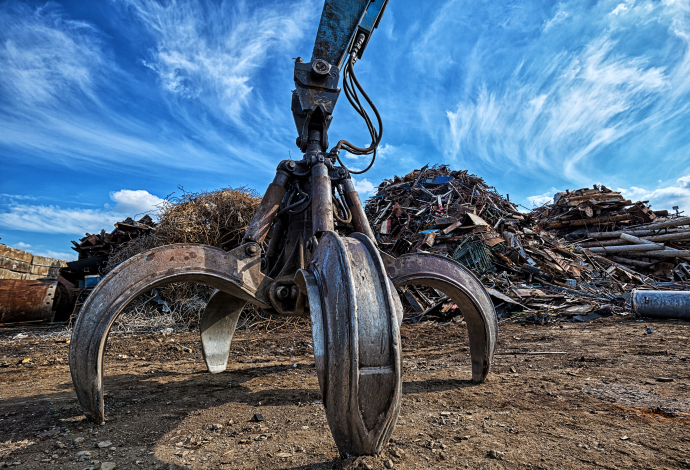How Metal Recycling Supports a More Sustainable UK Industry
27/05/2025
Closing the Loop: How Metal Recycling Supports a More Sustainable Future - As the UK continues to focus on sustainable industry and circular supply chains, metal recycling is playing an increasingly important role. While renewable technologies such as solar power and electric vehicles attract widespread attention, the sustainable sourcing and recovery of the metals that enable these technologies is equally critical. Without an efficient and environmentally responsible approach to managing metal resources, long-term sustainability targets will be difficult to achieve.

The Environmental Cost of Virgin Mining
Producing metals from virgin ore is both resource-intensive and environmentally damaging. For example, manufacturing one tonne of refined copper from raw ore can emit up to 3.5 tonnes of CO₂ (source: International Copper Association). Similar impacts are seen across metals like aluminium, lithium, and nickel.
As demand for critical metals rises across industries, including construction, energy, and manufacturing, continuing to rely on raw extraction is neither economically nor environmentally sustainable.
The Case for Metal Recycling
Metal recycling is a proven way to reduce environmental impact. According to the European Aluminium Association, recycling metals can cut energy use by up to 95% compared to primary production. The International Energy Agency (IEA) estimates that improved recycling could reduce the need for newly mined copper and cobalt by 40%, and lithium and nickel by 25%, by 2050.
These figures demonstrate how recycling non-ferrous metals can make a substantial contribution to lowering industrial energy use and reducing waste.
Supporting Circular Supply Chains in the UK
In the UK, growing innovation in metal recycling equipment and processing methods is helping to create a more circular industrial landscape. Techniques such as urban mining—recovering valuable metals from old machinery, electronics, and decommissioned assets—are helping reduce reliance on imported materials.
At BlakerTech, we support this shift by designing and manufacturing advanced metal separation systems that are engineered and built in the UK. Our equipment is used to recover valuable non-ferrous metals from mixed materials, helping businesses reduce waste, improve process efficiency, and increase the value of recovered materials.
By manufacturing locally and working with UK suppliers, we also contribute to reducing the carbon footprint of our supply chain while supporting British engineering and employment.
Common Barriers to Progress
Despite its advantages, metal recycling in the UK still faces several obstacles. Infrastructure and capabilities vary by region, regulatory frameworks are inconsistent, and economic models often still favour the use of newly mined metals over recycled alternatives.
Overcoming these barriers will require continued investment, clear policy direction, and industry collaboration to ensure that metal recycling becomes a mainstream solution across multiple sectors.
A Practical Route to Sustainability
Building a more sustainable industrial base in the UK means embedding circular economy principles into everyday operations. Expanding domestic metal recycling capacity is not only an environmentally responsible approach—it also strengthens industrial resilience and reduces reliance on global supply chains.
At BlakerTech, our equipment is designed to enable the efficient separation of non-ferrous metals, helping to prevent valuable materials from going to landfill and supporting responsible resource management.
Looking to Improve Your Recycling Process?
If your organisation is exploring ways to recover more materials, reduce waste, or enhance operational sustainability, we’d welcome the opportunity to speak with you.
For further information, or to speak with a member of our team, please contact: info@blakertech.com
Sources:
- International Energy Agency (IEA) – Global Material Demand Outlook
- European Aluminium Association – Environmental Profile Report 2022
- International Copper Association – Copper and CO₂ Emissions


